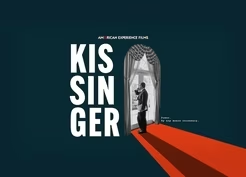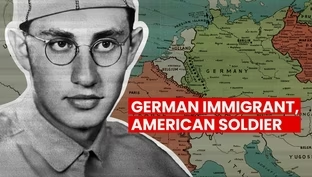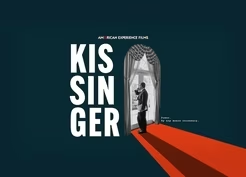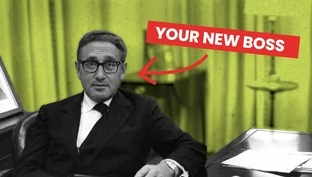
Why Did Kissinger Wage A Secret War On Cambodia?
Clip: Season 37 Episode 6 | 5mVideo has Closed Captions
Kissinger and Nixon authorized the secret bombing of Cambodia in 1969.
Intent on disrupting North Vietnamese supply lines, Henry Kissinger and Richard Nixon authorized the secret bombing and invasion of neighboring Cambodia in 1969. The campaign set off a series of events that destabilized the nation—and paved the way for the Khmer Rouge's rise to power.
Problems playing video? | Closed Captioning Feedback
Problems playing video? | Closed Captioning Feedback
Corporate sponsorship for American Experience is provided by Liberty Mutual Insurance and Carlisle Companies. Major funding by the Alfred P. Sloan Foundation.

Why Did Kissinger Wage A Secret War On Cambodia?
Clip: Season 37 Episode 6 | 5mVideo has Closed Captions
Intent on disrupting North Vietnamese supply lines, Henry Kissinger and Richard Nixon authorized the secret bombing and invasion of neighboring Cambodia in 1969. The campaign set off a series of events that destabilized the nation—and paved the way for the Khmer Rouge's rise to power.
Problems playing video? | Closed Captioning Feedback
How to Watch American Experience
American Experience is available to stream on pbs.org and the free PBS App, available on iPhone, Apple TV, Android TV, Android smartphones, Amazon Fire TV, Amazon Fire Tablet, Roku, Samsung Smart TV, and Vizio.
Buy Now
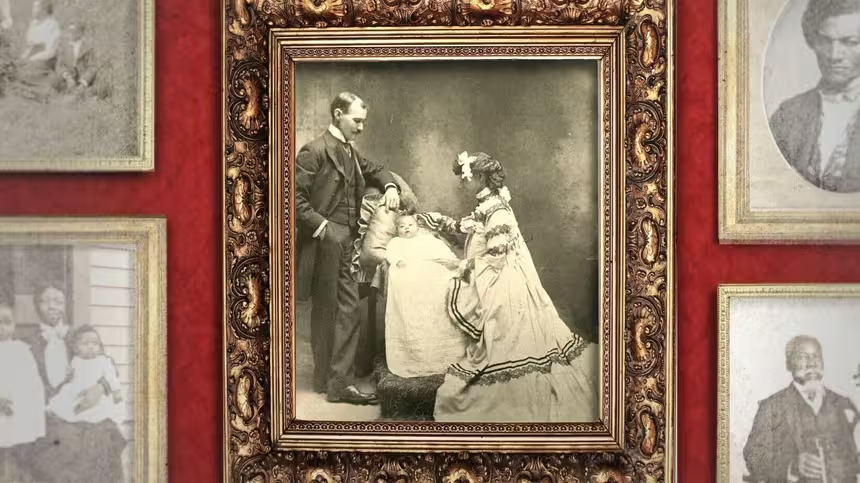
When is a photo an act of resistance?
For families that just decades earlier were torn apart by chattel slavery, being photographed together was proof of their resilience.Providing Support for PBS.org
Learn Moreabout PBS online sponsorshipThe bombing campaign in Cambodia was a secret, maybe to the American, but certainly not to the Cambodians.
They were all supposed to be well-intended decisions.
My father, who died, my oldest brother who's still missing to this day.
Are they the victims of geopolitics and of decisions made with good intentions?
But that led to disaster.
Yes, absolutely.
What's important to know about Cambodia was that it was in the middle of the war.
To the west was Thailand, which was equivalent of the air base for the American War.
To the north is Laos.
And to the east, of course, is Vietnam.
It's right in the middle, and it's neutral.
Kissinger believes that Cambodia is a real problem for the United States in Vietnam because even though the Cambodian leader and others are trying to play neutral, the North Vietnamese are sending supplies to Cambodia.
That's just a fact.
Nixon and Kissinger came up idea well well start bombing Cambodia.
Well the president doesnt have the right to bomb a neutral country.
The question is does the president have the right to react against concentrations of enemy troops that have already occupied neutral territory.
All the opinions we received was that this was a clear exercise of the right of war.
Kissinger thought if the North Vietnamese supply lines could be broken If the flow of man and material could be disrupted Then the North Vietnamese would be greatly weakened.
So Operation Menu is launched in which sorties secretly bomb the problematic area where the Ho Chi Minh trail is located The secret bombing of Cambodia sets in motion a set of events which result in the overthrow of Prince Sihanouk.
And almost within a year a relatively stable place has been turned into a hell hole.
The bombing eviscerates the country and 2 million people end up in Phnom Penh as, basically, internally displaced persons.
[Reporter] At 7:30 a.m.
on April 17th, 1975, the war in Cambodia was over.
On this, perhaps the most gentle and graceful land in all of Asia, President Nixon and Mr.
Kissinger unleashed 100,000 tons of bombs.
The equivalent of five Hiroshimas.
Then out of the forest came the victors, The Khmer Rouge.
The Khmer Rouge was essentially an insignificant movement up until 1970.
The bombing did not create the Khmer Rouge, but it was a powerful recruitment tool.
Within 24 hours, they announced that the city would have to be evacuated.
They emptied the hospitals while people were still in the middle of surgery.
Patients were left to die on the gurneys, and that was just the beginning of the killing.
[Reporter] The Khmer Rouge interrogated and then external exterminated anyone they suspected of opposing them.
I have yet to find anyone who have not been affected by a loss.
We have a Khmer which is baksbat.
It's a broken spirit.
It's like when the spirit has been so broken, under fear, under terror that it doesn't recover.
I think the tragedy of Cambodia is directly attributable to the policies of Kissinger and Nixon.
There's no question that our continued bombing of the countryside, which was savage and relentless, led to the rise of the Khmer Rouge.
Well I think with respect to the charges that have been made that the administrations policy contributed to the devastation of Cambodia.
I think this is a act of considerable hypocrisy.
Im not saying that every decision was correct.
That Im a party to them and that will have to be sorted out by others.
Cambodia was never in the foreground of the Vietnam War.
Cambodias suffering was not in the public eye, and therefore allowed to continue because nobody knew about it.
Sometimes it makes me wonder about the hierarchy of suffering and the unequal value that's attributed to people's lives.
Some lives are worth more than others, but some countries are worth sacrificing in order that others can prosper.
For more watch Kissinger from American Experience.
Video has Closed Captions
Preview: S37 Ep6 | 9m 3s | Watch a preview of Part One of Kissinger. (9m 3s)
How WWII Shaped Henry Kissinger's Identity
Video has Closed Captions
Clip: S37 Ep6 | 3m 41s | Kissinger escaped Nazi Germany and emigrated to the U.S., where he was drafted in the U.S. Army. (3m 41s)
Trailer | Kissinger | American Experience
Video has Closed Captions
Preview: S37 Ep6 | 2m 53s | The life of the brilliant foreign policy powerbroker who shaped the world in which we live. (2m 53s)
What It Was Like to Work for Henry Kissinger
Video has Closed Captions
Clip: S37 Ep6 | 4m 45s | Hear what it was like working for Henry Kissinger from former staffers. (4m 45s)
Providing Support for PBS.org
Learn Moreabout PBS online sponsorshipSupport for PBS provided by:
Corporate sponsorship for American Experience is provided by Liberty Mutual Insurance and Carlisle Companies. Major funding by the Alfred P. Sloan Foundation.


